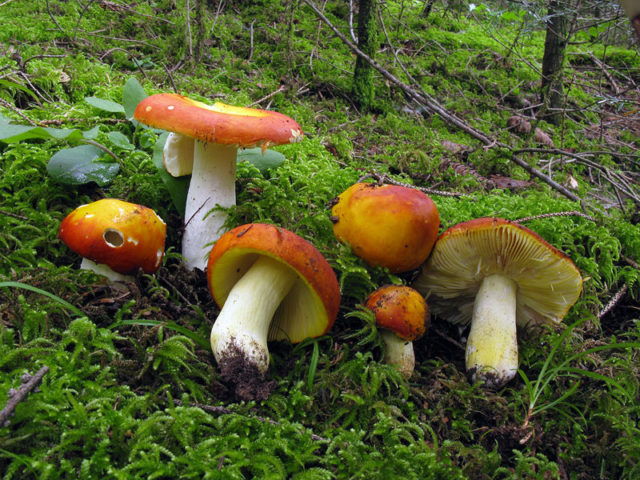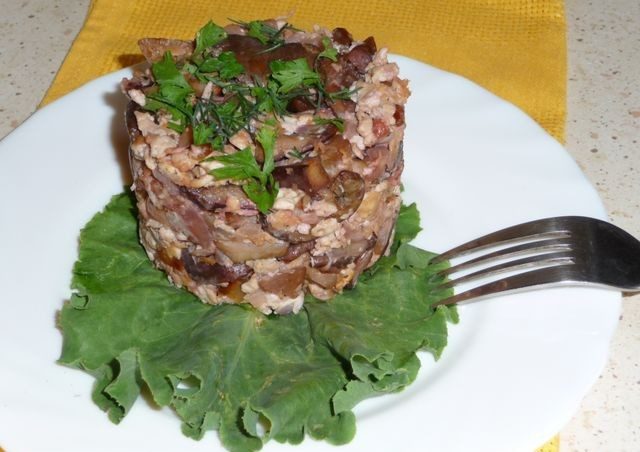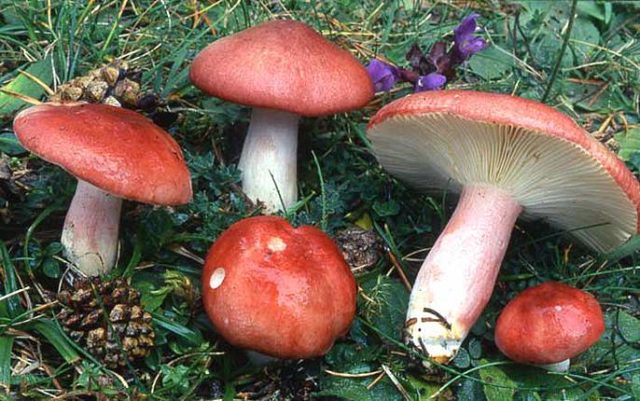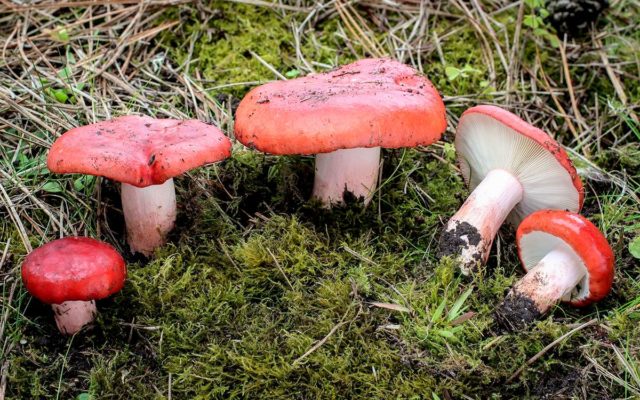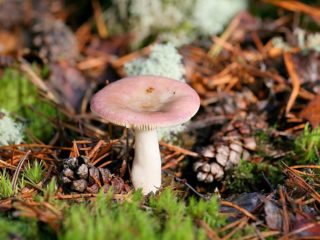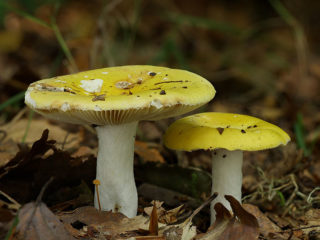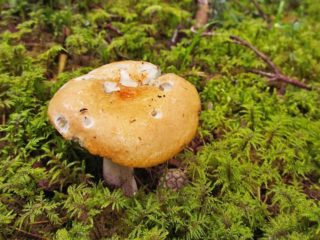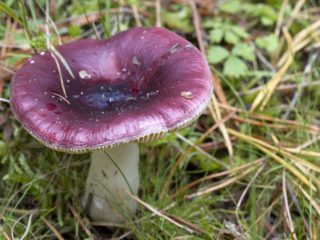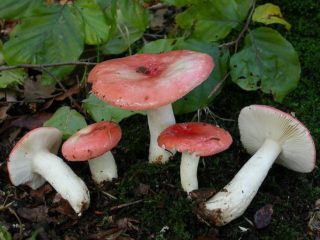Content
The golden russula is a representative of the russula genus (Rusula) of the russula family. This is a rather rare mushroom species that is not often found in Russian forests, and is common in deciduous and deciduous forests of Eurasia and North America.
Where golden russules grow
The fungus grows in deciduous forests, but it can be found in coniferous forests, and in mixed plantings, mainly at the edge. It grows well on ordinary forest soil, single specimens and small families are more common. The golden russula appears at the beginning of summer; it is harvested until the first autumn frosts.
In Russia, the mushroom is rare, but it is found in the south of the Krasnoyarsk Territory, more often it can be found in the Far East and very rarely in the European part of the country. Distributed in birch-coniferous forests of Western Siberia.
What golden russula look like
This is a large-fruited, beautiful mushroom with a bright cap color. Its color can be dark orange, light gold, brick and even red. The lower part of the mushroom (stem) is wide, cylindrical, white
Description of russula golden
The russula golden (Russula aurata) has a large, strong, even, open cap. Its diameter can reach 12 cm. In old mushrooms, the shape of the cap forms a saucer with raised edges. Its central part becomes light, golden, the edges are darker. The color can be brick red, orange, the middle is yellow, golden. The edge of the cap is ribbed, ribbed.
The leg is thick, often even, but may be slightly curved. It is cylindrical, grayish-white, pale yellow below. Its diameter reaches 3 cm. The height of the leg can vary from 3 to 8 cm. The surface can be smooth or covered with a network of shallow wrinkles; in old mushrooms, the surface becomes loose.
The pulp is fragile, brittle, crumbly, odorless. After cutting the mushroom, its color does not change on the slices. Under the skin, the color of the pulp is pale yellow.
The plates are frequent, rounded at the edges, not attached to the pedicle. Their length can vary from 6 to 10 cm. In young mushrooms, the color of the plates is creamy, over time it begins to turn yellow.
Spores are ovoid, white, covered with small frequent tubercles, forming a mesh. Spore white powder.
Is it possible to eat golden russula
The collection starts from the end of June and ends with the arrival of October. You can often find a mushroom at the foot of an oak tree in the heap of its foliage. The golden representative of the russula family can be safely put in a mushroom basket and eaten in any form: salted, pickled, fried or boiled. But, despite the telling name of the mushroom, it is not recommended to eat it raw.
Taste qualities of golden russula
The golden russula belongs to the edible mushroom species and has a good taste.The flesh is slightly sweet, bitterness is completely absent. There is no characteristic mushroom smell.
Benefit and harm
Golden russula is eaten as a natural substitute for animal protein and meat. It contains vitamins B2 and PP and is completely fat free. It is also a low-calorie product that people who control their weight can safely eat.
The golden russula is similar to some types of inedible and conditionally edible mushrooms, so it should be collected very carefully. Despite its name, fresh mushroom is not eaten, as this can lead to unpredictable consequences.
Doctors do not recommend eating mushrooms, including russules, for people with pancreatic diseases. They are also prohibited for children under 12 years old.
The composition, like other edible mushrooms, contains the protein chitin, which gives a serious load on the human digestive system. One serving of mushroom for an adult should not exceed 150 g, so it is easier for the digestive system to digest a heavy product.
False doubles of golden russula
An inexperienced mushroom picker can confuse a golden russula with a beautiful russula. The color of their caps and the shape of the legs are almost the same. In a beautiful russula, the hat has a redder, darker color or light pink. The leg is also painted in a light light pink color. The pulp is firm throughout the mushroom body, after cutting it does not crumble. Also, this species has a pronounced fruity odor, and when cooked, it begins to smell of turpentine. This mushroom belongs to the conditionally edible group, since it does not have good taste, after processing it exudes an unpleasant odor.
Blood-red russula is another inedible member of the family, which looks like a golden russula. In an inedible mushroom, the cap is much darker and has a pronounced red or pink color. The leg is pale pink, and in the golden russula it is yellowish. The mushroom is classified as a conditionally edible species, since it has an unpleasant bitter taste and causes mild gastrointestinal upset.
The use of russula golden
This type of mushroom is widely used in cooking. Roast is prepared from them, side dishes, pickled, salted, dried for future use.
Before cooking, it is recommended to pour the mushroom over with boiling water to make the pulp more elastic and maintain its shape, especially if it will be pickled or rolled up in jars. Tasty russula stewed in sour cream sauce are obtained. They can be used to make pies and pizza toppings. Salted russula can be eaten the next day. They can also be rolled into banks and harvested for the winter.
There is another way of harvesting for future use - this is drying. Each russula is washed, dried and strung on threads, then hung in a dry, warm room. Thus, the mushroom gradually shrivels and dries out, but at the same time retains all the taste qualities and even enhances them. Subsequently, delicious mushroom broths and soups can be cooked from such a blank.
The process of cooking the golden russula does not take much time: it is enough to boil it once for half an hour and add it to any dish. Before cooking, the golden russula is recommended to be soaked in water and left overnight or soaked in liquid for a couple of hours.
Conclusion
The golden russula is a large beautiful mushroom that can be collected and eaten without fear. On the territory of Russia, it is a rather rare representative of the Russula family, but in some regions it grows in sufficient quantities. Prefers deciduous and mixed forests in the northern part of the country. It is quite versatile, has a good taste, you can cook any mushroom dishes from it.During the collection process, it is important not to confuse the golden russula with its inedible counterparts that cause food poisoning.

